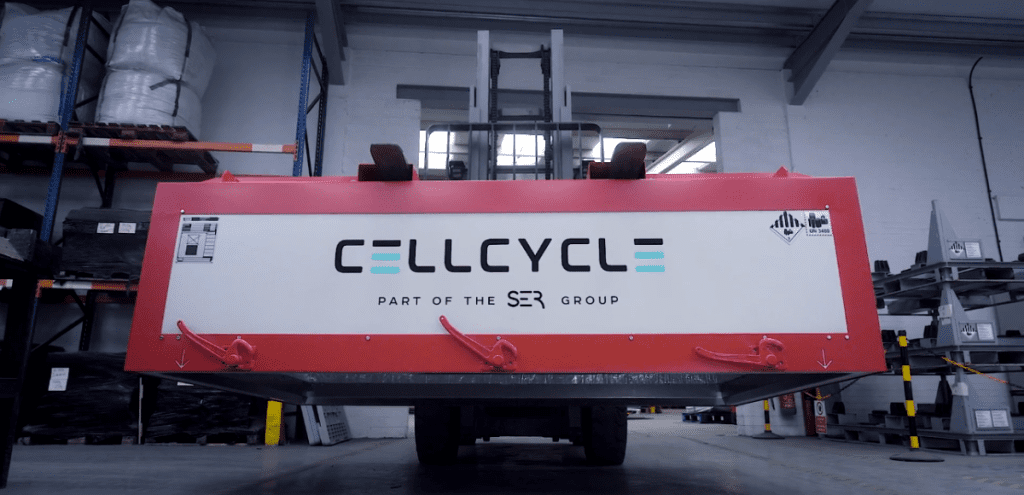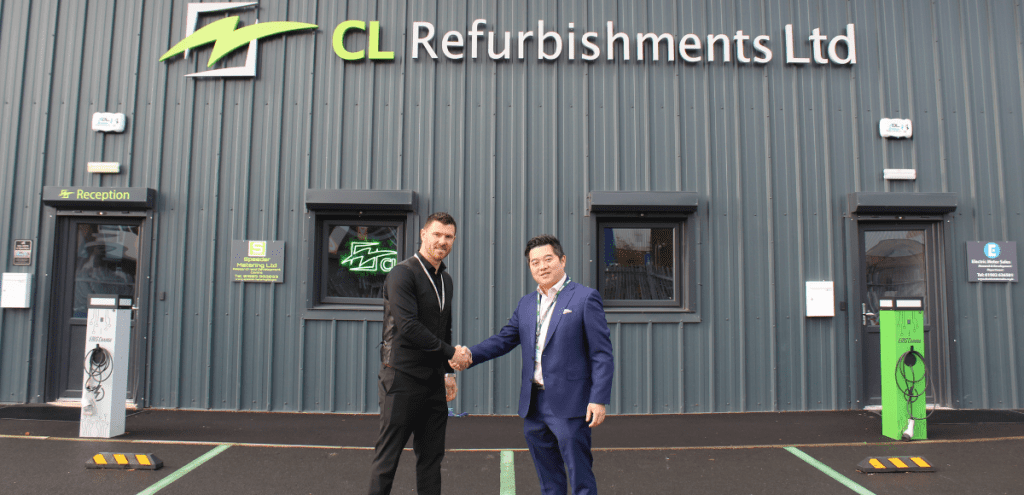As the energy and utility sector evolves, the use of smart metering systems has become increasingly prevalent. These systems, which include devices like water meters and energy meters, often rely on lithium-ion batteries due to their high energy density and long life. However, while these batteries are efficient and effective in powering utility meters, they pose significant challenges when it comes to recycling.
Why Are Lithium-Ion Batteries Hard to Recycle?
Complex Composition
Lithium-ion batteries are composed of various materials, including lithium, cobalt, nickel, manganese, and graphite. The separation and extraction of these materials are complex and require sophisticated technologies. This complexity is further compounded by the fact that different types of lithium batteries (such as lithium iron phosphate, lithium cobalt oxide, etc.) require different recycling processes. Each type of battery has a unique chemical makeup, which means that a one-size-fits-all recycling process is not feasible. The need for different processes for each battery type increases the complexity and cost of recycling.
Hazardous Materials
The components of lithium-ion batteries can be hazardous if not handled properly. Lithium, in particular, is highly reactive and can pose significant safety risks during the recycling process. Improper handling can lead to fires or explosions, making the recycling process dangerous and requiring specialised safety protocols. Additionally, cobalt and nickel are toxic materials that can have severe environmental and health impacts if not managed correctly. The handling of these materials requires stringent safety measures to protect workers and the environment.
Economic Viability
The cost of recycling lithium-ion batteries is high. The process involves intricate disassembly, safe handling of hazardous materials, and the use of advanced technology to extract usable materials. Often, the economic return from recycled materials does not justify the high costs, making it less attractive for recycling companies to invest in the necessary infrastructure. The high costs are a significant barrier, as they make the recycling process economically unfeasible without substantial subsidies or incentives. Additionally, fluctuations in the prices of raw materials like cobalt and nickel can impact the economic viability of recycling efforts.
Environmental Concerns
While the recycling process aims to recover valuable materials and reduce waste, it can also generate environmental pollutants if not managed correctly. The extraction of metals and the handling of toxic substances can lead to air and water pollution, negating some of the environmental benefits of recycling. The environmental footprint of the recycling process itself needs to be carefully managed to ensure that the benefits outweigh the negative impacts. Effective management of waste and emissions is crucial to maintain the environmental integrity of recycling operations.
Lack of Standardisation
There is no one-size-fits-all approach to recycling lithium-ion batteries due to the variety of chemistries and formats. This lack of standardisation complicates the recycling process and requires recyclers to develop multiple processes to handle different battery types, increasing the complexity and cost. Without standardisation, it is challenging to create a streamlined, cost-effective recycling process that can be applied broadly across the industry. This variability necessitates ongoing research and development to keep up with evolving battery technologies.
Specialised Recycling by Cellcycle
Given these challenges, it is crucial to have specialised recycling solutions tailored to the unique needs of the energy and utility sector. This is where Cellcycle excels. We are dedicated to providing comprehensive recycling solutions for lithium-ion batteries used in utility meters and other applications within the energy sector.
Advanced Recycling Partner
We have established the UK’s largest network of refining partners dedicated to critical material recovery. This extensive network ensures the efficient recycling of used batteries and supports the production of new batteries by contributing valuable materials. By leveraging this network, we enhance the sustainability and circular economy of the battery industry, ensuring that essential materials are continuously reused. Our partnerships with these refining entities are a testament to our commitment to innovation and environmental stewardship. Our ability to coordinate with multiple partners allows us to streamline the recycling process, reducing downtime and ensuring a steady supply of recovered materials.
Commitment to Safety and Environmental Responsibility
At Cellcycle, we understand the hazardous nature of lithium-ion batteries, so we prioritise safety throughout the recycling process. Our team is trained in the safe handling of batteries, and we use specialised equipment to mitigate risks associated with fires and thermal events. Additionally, we are committed to making the recycling process economically viable while minimising environmental impact. We strive to balance the cost of recycling with the recovery of valuable materials, ensuring the process is sustainable in the long term. Moreover, we adhere to stringent environmental standards to ensure our recycling processes do not harm the environment. Our compliance with these standards underscores our dedication to responsible recycling practices. We conduct regular audits and assessments to continuously improve our safety and environmental protocols.
Comprehensive Services
Beyond recycling, Cellcycle offers a range of services including onsite decommissioning, dismantling, and collection. This end-to-end approach simplifies the process for utility companies, ensuring that batteries are safely and efficiently removed from service and recycled responsibly. By providing a complete suite of services, we make it easier for utility companies to manage their lithium battery recycling needs without having to coordinate with multiple vendors. Our comprehensive services ensure that every aspect of battery handling, from removal to recycling, is managed efficiently and safely. We also offer consulting services to help companies develop and implement their own battery recycling programs, providing expertise and support to optimise their processes.
Industry Leadership
As the UK’s only recycler of lithium thionyl chloride batteries, commonly used in utility meters, Cellcycle leads the industry in addressing a critical need. Their partnership with CL Refurbishments Ltd enhances their capabilities, providing a complete solution for the recycling of utility meters and their associated batteries. By being at the forefront of this niche market, Cellcycle sets the standard for safe and efficient battery recycling practices. Our leadership in this area is a reflection of our innovative approach and our commitment to addressing the specific needs of the energy and utility sector. Our pioneering efforts in recycling lithium thionyl chloride batteries demonstrate our capacity to tackle even the most challenging recycling scenarios.
Innovation in Recycling Technologies
To tackle the recycling challenges, Cellcycle continually invests in research and development. We explore new technologies and methods to improve the efficiency and safety of the recycling process. Innovations such as advanced robotic disassembly, automated sorting, and improved material recovery techniques are just some of the areas where we focus our efforts. By staying at the cutting edge of technology, we aim to make the recycling of lithium-ion batteries more cost-effective and environmentally friendly. Our R&D team is dedicated to finding solutions that can be scaled globally, enhancing the overall impact of our recycling initiatives. We also collaborate with academic institutions and industry partners to stay abreast of the latest advancements and integrate them into our processes.
Supporting the Circular Economy
Cellcycle’s efforts in recycling not only address immediate environmental concerns but also support the broader goal of a circular economy. By recovering and reusing materials from spent batteries, we reduce the need for mining new raw materials, which has significant environmental and social impacts. Our approach ensures that valuable resources are not wasted and that the lifecycle of materials is extended, contributing to a more sustainable and resilient economy. We actively engage in industry forums and policy discussions to advocate for circular economy principles and promote best practices in battery recycling.
Educational and Advocacy Efforts
In addition to our recycling services, Cellcycle is committed to educating stakeholders about the importance of battery recycling. We conduct workshops and seminars for utility companies, regulatory bodies, and the general public to raise awareness about the challenges and opportunities in battery recycling. Our advocacy efforts aim to influence policy and regulatory frameworks to support sustainable recycling practices. By fostering a greater understanding of the issues and solutions, we hope to drive more widespread adoption of effective recycling practices.
Conclusion
Recycling lithium-ion batteries from smart metering systems and other utility applications presents significant challenges due to the complex composition, hazardous materials, economic factors, environmental concerns, and lack of standardisation. By employing advanced technology, prioritising safety, and committing to economic and environmental responsibility, Cellcycle is paving the way for sustainable battery recycling in the energy and utility sector.
For more information on Cellcycle’s services and how they can assist with your battery recycling needs, visit here.


